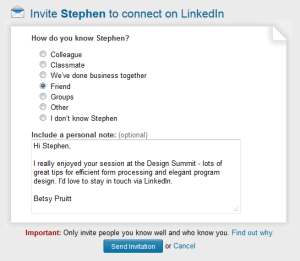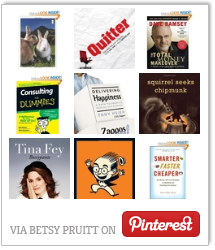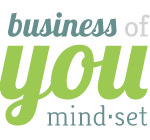How to Find THE Job for You by Leveraging Human Resources
The Business of You is made up of the same departments as a traditional company. Simply flipping the script on how you see these departments in your own life can be key to taking your career to the next level. Today, let’s look at Human Resources in the Business of You.
 If you’ve wondered how to find THE job for you, it’s time to approach your search from a Human Resource perspective. In most companies, Human Resources initiates the search for job applicants, conducts initial interviews, and negotiates benefits. When you look for a new job or consider clients, you take on the role of a Human Resources manager. Therefore, you need to interview your potential employers and clients to see if they’re a good fit for you. Do they have what it takes to help you soar or better position you for success later in your career? Will working with them be energizing? If not, keep looking!
If you’ve wondered how to find THE job for you, it’s time to approach your search from a Human Resource perspective. In most companies, Human Resources initiates the search for job applicants, conducts initial interviews, and negotiates benefits. When you look for a new job or consider clients, you take on the role of a Human Resources manager. Therefore, you need to interview your potential employers and clients to see if they’re a good fit for you. Do they have what it takes to help you soar or better position you for success later in your career? Will working with them be energizing? If not, keep looking!
In case you’re thinking, “It’s a tough job market right now….I can’t do that.” You absolutely can! I accepted a new full-time position in the last year, and approaching my job search in this manner, made the entire process much more enjoyable. Instead of feeling nervous about upcoming interviews and second guessing my responses to questions after the fact, I felt more confident and in control. Knowing that I was interviewing my potential employers as much as they were interviewing me gave new direction to my interview preparation, evaluation of resulting offers, and negotiations.
Just like a Human Resources manager, it’s your job to recruit quality applicants to work with the Business of You. Likewise, since your employer or client is getting the privilege of working with you for an indefinite period of time, it’s important to do your own due diligence to see if they’re a good fit for you.
Here are some concrete tips to help you find THE job for you:
- Get on the radar at companies that interest you
 As you know, most positions get filled before they are ever advertised, so you need get the attention of your prospective employers before they have a need. The best way is to put feelers out with people you know (friends, vendors, etc.) to see if you can get informal introductions via LinkedIn or in-person events. When you meet these new contacts, simply try to learn more about what they do and how you can be a helpful resource to them. It can be as simple as forwarding articles that might interest them from time to time. This keeps you on their radar when something does come up. If I don’t have an “in” at a particular company, I never hesitate to connect with them directly though LinkedIn via the “friend” option and a personal message giving a reason how I can help them or what we might have in common. Forget sending a cover letter or your resume at this point. It seems too needy and presents a singular agenda that might not interest them. Remember at these early stages, it’s all about how you can be sincerely helpful to them.
As you know, most positions get filled before they are ever advertised, so you need get the attention of your prospective employers before they have a need. The best way is to put feelers out with people you know (friends, vendors, etc.) to see if you can get informal introductions via LinkedIn or in-person events. When you meet these new contacts, simply try to learn more about what they do and how you can be a helpful resource to them. It can be as simple as forwarding articles that might interest them from time to time. This keeps you on their radar when something does come up. If I don’t have an “in” at a particular company, I never hesitate to connect with them directly though LinkedIn via the “friend” option and a personal message giving a reason how I can help them or what we might have in common. Forget sending a cover letter or your resume at this point. It seems too needy and presents a singular agenda that might not interest them. Remember at these early stages, it’s all about how you can be sincerely helpful to them. - Conduct more than one interview
Once you’re in, if your potential employer doesn’t automatically schedule more than one interview before making an offer, see if you can go to lunch or out for coffee. It’s hard to get a feel for someone’s true personality after just one exchange. A second meeting can often give you a better indication of what they might be like to work for or with on a daily basis. Are they relaxed? Does their demeanor seem night and day from the last time you interacted? How do they treat the waitress or barrista at Starbucks – pleasantly polite or somewhat condescending? You can expect to receive similar treatment under their employment. - Take a prospective co-worker out to lunch
LinkedIn makes it super easy to research who you might be working with, if you weren’t already introduced on your initial interviews. This is a great way to get a behind the scenes look at how the company operates and the group dynamic that exists in the department or division where you’ll work. If possible, try to find someone to that is managed by your prospective boss. When you meet, be sure to ask about this person’s journey through the company. Have they been in the same position with the same title for 10 years, or have they progressed over time? Have they had opportunities to develop new skills through training events or industry conferences? When they suggest an idea, how likely is it to be considered or implemented? Do they have access to all the tools they need to be successful? Again, you can expect to have a similar experience. If you want to take this a step further, additionally, try to take the person you’ll be replacing or a former employee out to lunch to see what their experience was like. Just remember to take their comments with a grain of salt. - Consider the long-term career benefits
Having a position that gives you the opportunity to acquire new skills that add value to the Business of You should be just as important as the financial compensation and benefits package a company offers. Ultimately, your goal should always be to increase your market value. Staying current on industry trends and having access to the latest and greatest tools of your trade is important, so don’t be afraid to ask your prospective employer about details regarding the workstation and specific software versions you’ll use to complete your work. These are things you’ll need to heavily factor in when evaluating an offer.
While many of these tips are directed toward a job search, the same advice applies if you’re self-employed and evaluating clients. You may simply want to reduce the time invested in this process according to the contract time and dollar value associated with a prospective client. It’s important to recognize that a needy or negative client can be just as draining as a dead-end job, so don’t feel like you need to work with every person who requests a quote. In my side business, I can often spot clues that clients that don’t offer a mutually beneficial relationship, and I politely decline their business.
The time and effort you devote to Human Resources directly impacts your day-to-day happiness and the long-term growth of the Business of You. This is how to find THE job for you.
What Human Resources tactics have been successful for you?




 Hi, I'm an online marketing consultant, and the Business of You Mindset is my personal life philosophy that focuses on helping you be the best version of YOU.
Hi, I'm an online marketing consultant, and the Business of You Mindset is my personal life philosophy that focuses on helping you be the best version of YOU. 

This is great advice! When I began job searching 10 years ago, I was fearful of the interview process, like most people. However, I sought out mentoring from a family member who works in Human Resources, and she taught me so much about interviewing the employer; this changed my life forever! I now view job interviews as FUN(!) and I’m never nervous or unsettled. I would agree with Betsy’s advice to work at arranging an informal meeting with someone from the prospective company; this allows you to be sure that the work will be mutual beneficial over the long haul.
I agree, Celeste! The interview process can be really fun when you approach it from that angle.